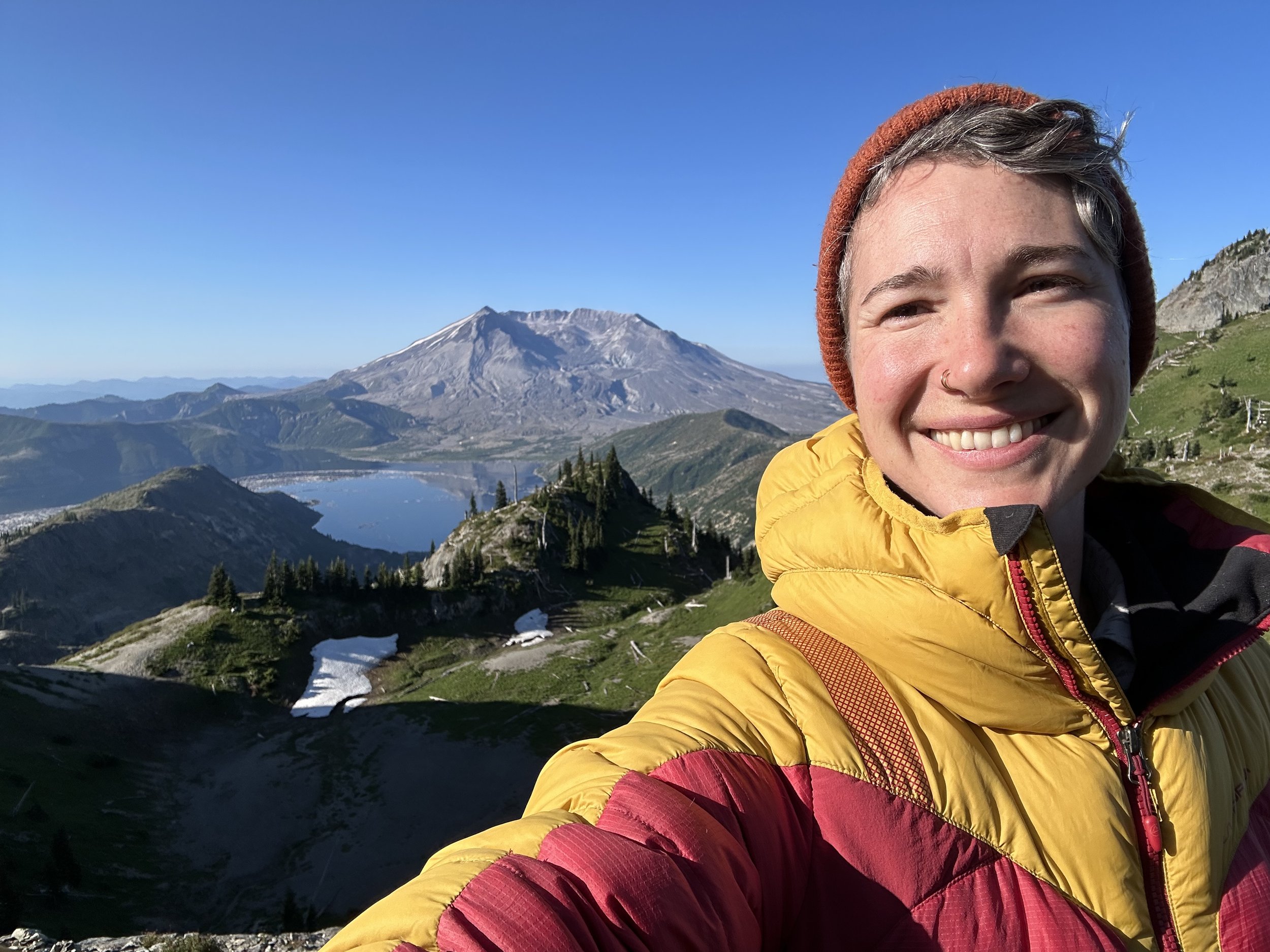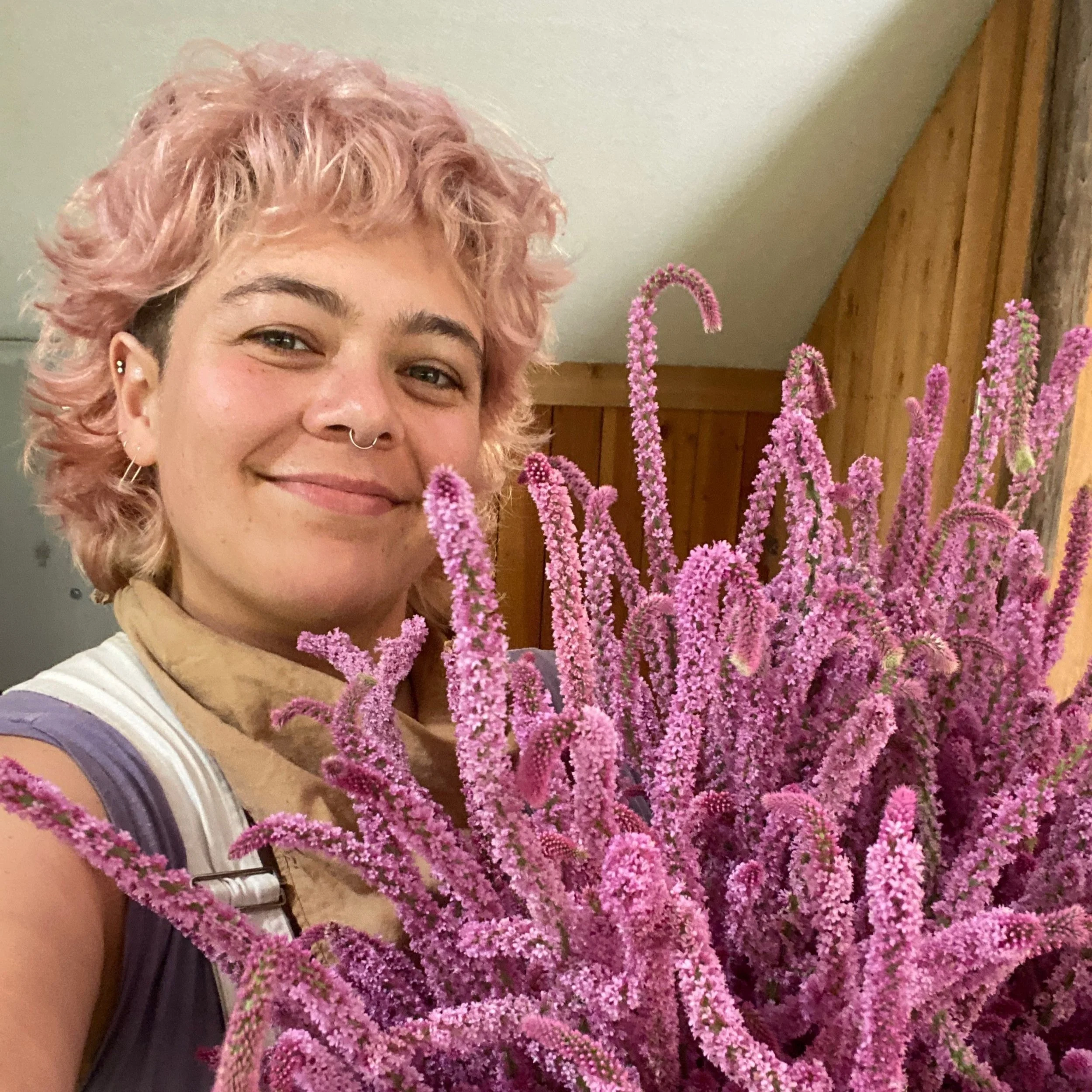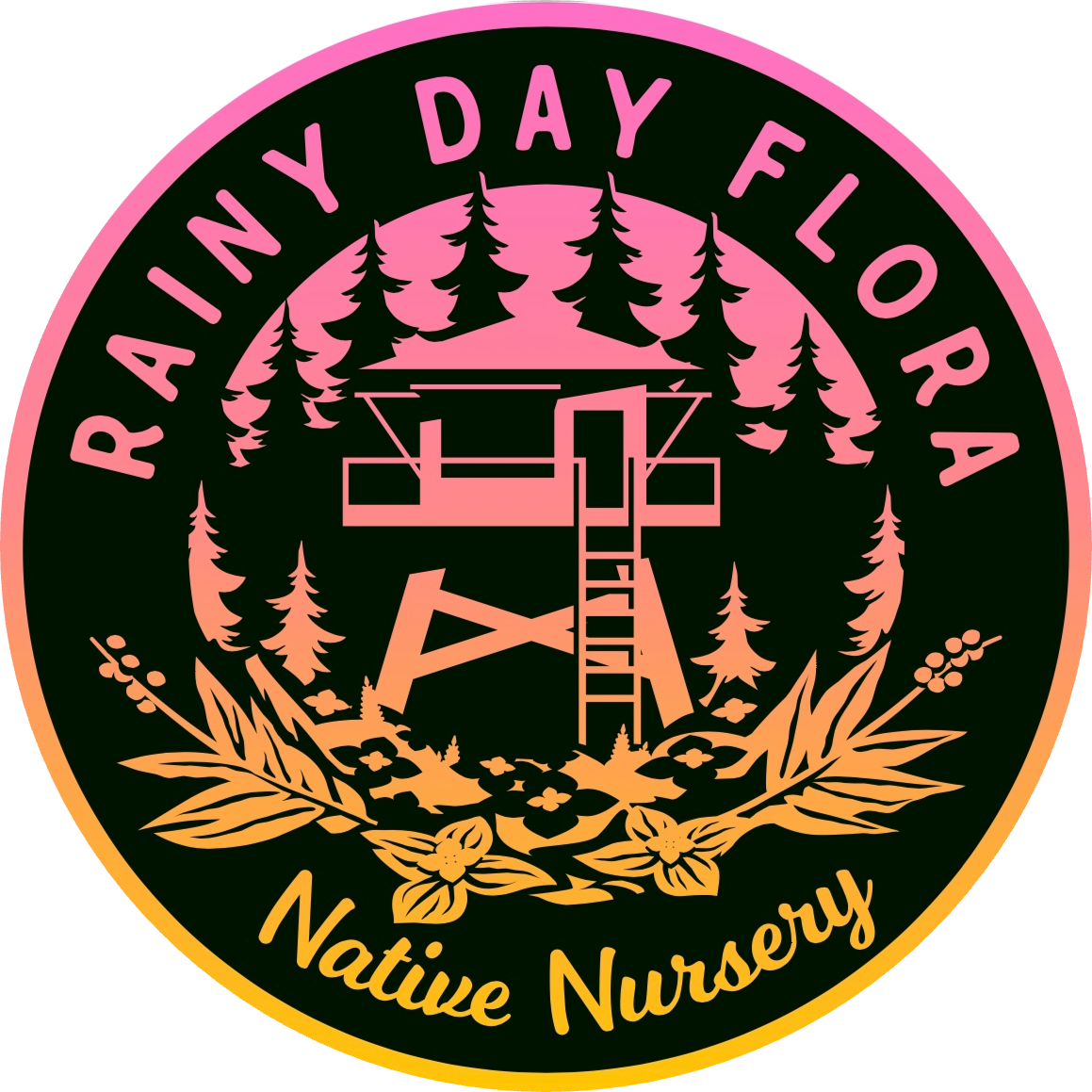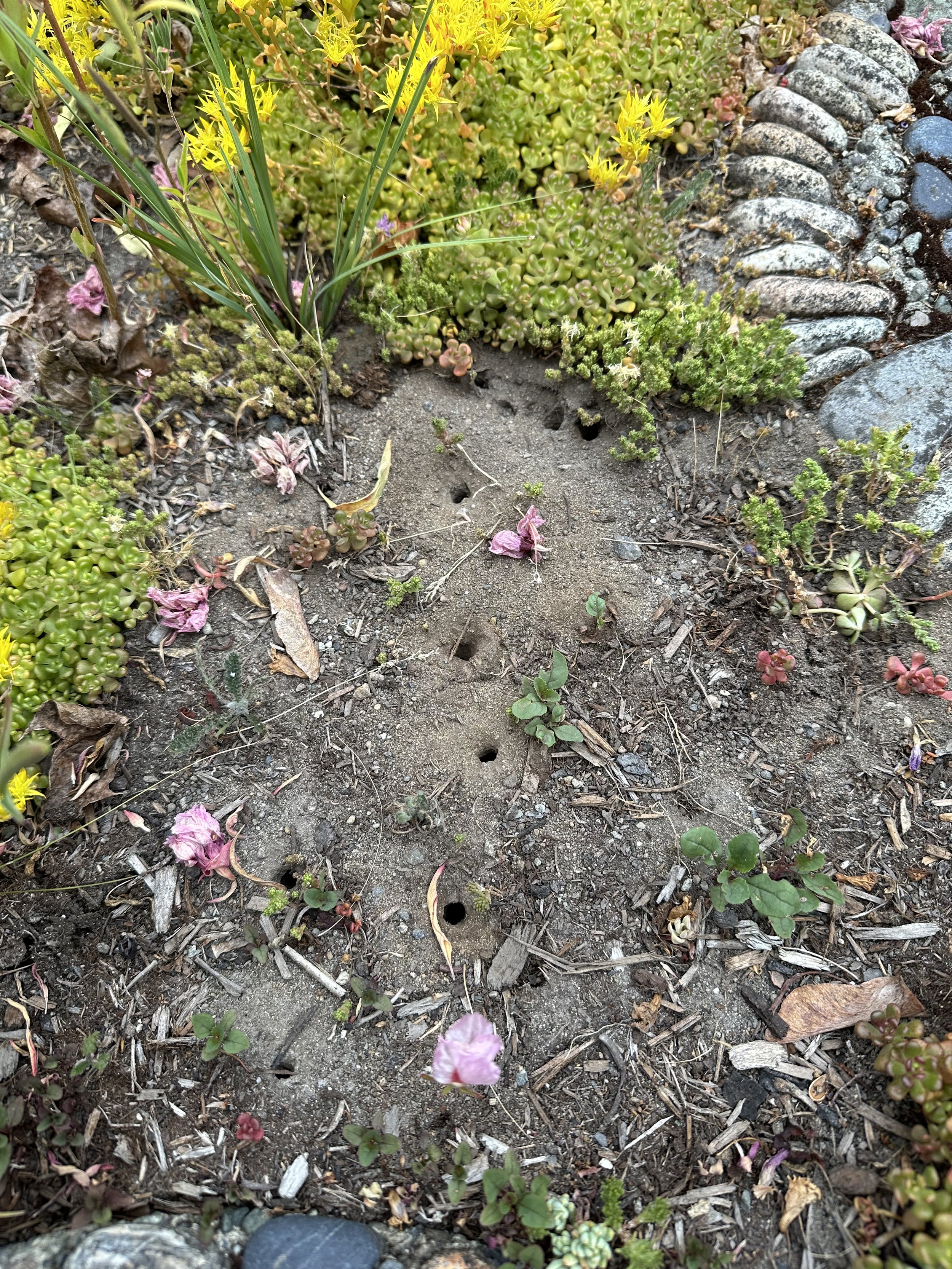
About Us
-
Jumanji Oliana, She/Her
Jumanji has been gardening professionally since 2008 when she opened her first garden design business in Seattle WA with two close friends and fellow plant nerds. In 2017 she moved back to her home town on Whidbey Island and expanded her business to include a native plant nursery in which she propagates much of her inventory. Her work centers on regenerative land-management practices and ecosystem health.
Jumanji's education includes an undergraduate degree in Environmental Science and Political Economics from the Evergreen State College. She also attended the horticulture department at the Edmonds Community College and completed the Wetland Science and Management program at the University of WA. Her knowledge of native plants stems from attending the Washington Native Plant Society's Native Plant Stewardship Program and her own passion for learning as much as she can about plants in this region. Jumanji often teams up with local contractors and gardeners to complete large scale projects.

-
Megan Thistle, She/Her
Megan was born and raised in the PNW but her work has taken her across the country. Her jobs have spanned a variety of fields including (but not limited to) gardening, farming, community health programming, political organizing, and forest firefighting. The thread connecting her interests and aspirations is community movement towards equity, joy, and rich biodiversity. Bastyr University’s Holistic Landscape Design program (class of 2020) drew her back to her home state of Washington, where a passion for regenerative land practices has taken root.
Megan’s work with Rainy Day Flora began as an internship while she finished her program at Bastyr University, and has grown to the point that she became a partner in the business at the beginning of 2024.

-
Maddie Bailey They/Them
Maddie grew up next to the mountains in Altadena CA. They attended Whitman College, where they studied geology and art, completed an internship at Quivira Coalition in sustainable land management in Santa Fe NM, and studied Sustainability and Environmental Action through the School for International Training in Byron Bay, NSW.
Maddie moved to Whidbey in 2020 to be a Food and Farm Educator at South Whidbey School Farms as an Americorps volunteer, which blended their love of farming, education, and building healthy soil. They instantly felt at home in the PNW ecosystem, spending the last 5 years learning all about the native ecology and now enjoys sharing their passion for composting, and regenerating the land on their communal property in the Maxwelton Valley. Maddie started working at Rainy Day Flora in 2024.

We Believe in Healthy Ecosystems
Our vision is to create and maintain gardens that connect people with nature. We believe that part of our responsibility is to help educate our clients and the public about sustainable gardening practices.
We live in a very unique and lush region with many species of conifers, deciduous trees and understory shrubs, which help clean our water, air and provide ideal habitat for native wildlife. Those same qualities afford excellent conditions for invasive species to flourish. Most invasive species started as garden favorites brought over from Europe or China, but without proper management and no native plants or animals to keep them in check, they have rapidly spread, replacing essential habitat.
For this reason, we try to be conscious of the long-term effects of the gardens that we install and encourage the use of native NW plants and non-invasive, non-native plants.
There are numerous benefits for using native plants in your landscape. Native plants have had thousands of years to adapt to the Pacific Northwest’s growing conditions. As a result they are very versatile in their soil, sun, and water needs, they require very little maintenance, their water usage is typically low unless they are a bog plant, in which case they are great for rain gardens and they grow well in native soil.
As well as being ideal for problem areas in your garden, native plants are typically more pest and disease resistant, and do not need fertilizers to grow. In addition, they provide a habitat for wildlife that benefit and in some cases, depend on native plants for food and shelter.



